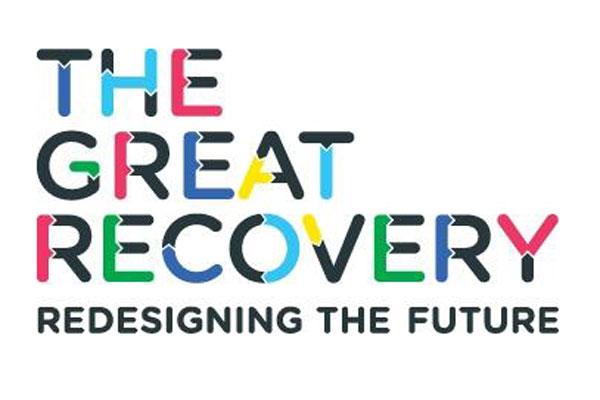Climate action is gathering pace. In the last six months we have seen millions of school children strike, and the UK has just become the first country to commit to reducing its carbon emissions to net zero by 2050. All critical, given the IPCC warning that we have only 12 years to halt catastrophic climate breakdown.
In this, the first London Climate Action Week, we are delighted to announce that the RSA's investments will be divested from fossil fuels.
We have been working with our fund managers, CCLA, to make this change. We already had very limited exposure within our investments but have now taken the step to divest holdings in the remaining oil and gas firms.
Engagement remains an invaluable tool for investors in promoting positive social, environmental and governance activities within firms, across a host of issues from modern slavery to mental health. However, the energy transition we need requires that we halt exploration, extraction and reduce the supply of fossil fuels and instead focus on sustainable energy solutions. Making financial flows consistent with this ambition is critical, and the RSA believes that to achieve this the time has come to divest holdings in fossil fuel firms.
It is a journey that began with the work of our former colleagues Jonathan Rowson and Tony Greenham. We are proud to be part of a global movement of organisations and investors making this change and hope that many other organisations follow suit.
Related articles
-
A citizens’ economy for tomorrow’s world
Kenny McCarthy
For the final challenge of the Citizens’ Economic Council, we’re crowdsourcing your ideas on how we can shift the incentives within our economy to meet the needs of tomorrow.
-
Money and climate change: when the signal makes a noise
Jonathan Rowson
With US$ 5.2 trillion now pledged to divest from fossil fuels, Jonathon Rowson reflects on how climate change is better understood as a problem with the financial system as much as an environmental issue.
-
Blog: Recycling - the USB plug for a circular economy
Sandy Roger
The standardised USB plug removes confusion, waste and inefficiency in our IT systems; Sandy Rodger argues that standardising our recycling processes would do the same for end of life material recovery.




Join the discussion
Comments
Please login to post a comment or reply
Don't have an account? Click here to register.
I’d like to congratulate the RSA for its fossil fuel divestment decision - courageous and forward thinking. The estimated total US$ Divestment Movement will soon reach $7T - about as much as the super rich have in offshore tax havens - would that they used their hoarded trillions for something more useful and worthwhile. As for the ridiculous notions of previous comments suggesting the IOCSs would use its “control” of the fossil fuel industry for anything other expanding its business or that they will somehow save us with their meagre and meaningless investments in alternatives - I ask please leave your naivety to those who are equally endowed.
I agree - the first step surely is to stop sending the magazine. It is unreadable in any case. Have we ever surveyed members to see how many pages or words of it they read each month ? The editing could do with more pictures to make it more readable - but that would waste a lot more paper.
I am to expert in this field, but much as the action is well-intentioned, are not BP (and probably other 'oil giants' major players in research for alternative sources of energy? Which other firms will RSA not invest in? Heavy industries that are a major consumers of energy, and producers of CO2? Arms manufacturers? Alcohol and tobacco companies? Gambling companies? Companies refining sugar, and selling sugar-laden products? It becomes so difficult to decide which investments are truly 'clean'!
Perhaps RSA should consider ceasing production of hard copies of the magazine and rely on electronic communication?
Best of luck with that - as Jordan Peterson would say.
Here is the logic
Any serious global modelling, shows that we will need fossil fuels for at least another thirty years. After that oil has gone post peak in any case. Thankfully there will still be plenty of natural gas to help through the transition.
But lets say, through the actions of organisations like the RSA, you manage to bankrupt BP and Shell and the other IOC's (Independant Oil Companies)
What then?
You will be totally reliant on NOCS (National Oil Companies) the like ARAMCO and GAZPROM and the Iranian State Industry.
The IOCS represent the only control, civilised society has on the Oil and Gas Industry. They have no army and they are wholly reliant on public support. They are also the largest project managers in the world- something we are going to need if we want to geo-engineer our way out of climate change and develop alternatives on a large enough scale.
On the other hand, the world that the RSA is creating by its actions, will hand control of fossil fuel supply to countries that have little environment accountability and are managed by regimes that do not honour the values that the RSA are meant to stand for.
It is easy to jump on band wagons, to ease our conscience - as we have seen several prominent actors, artists and organisations do recently. But that is not what the RSA should be doing. We should embrace the IOCs and work with them to build the transition plan that we need to need to get us through the next thirty years.
Populism is distasteful for many reasons, not least in that it fails to see the longer-term consequences of its actions. The RSA has a choice: be popular or be effective. Find a common ground and work with the IOC's or find a scapegoat that makes everyone feel, for the time being, they'e making a contribution
Putin, MBS and the rest of the authoritarian mob will rub their hands with delight at the way organisations like the RSA are destroying their compeditorsand giving them free control on the ingredient that (whether you like it or not) the world will need for the medium term.
Of course, we are all concerned about climate change. But a State suddenly despirved of oil and gas will turn to coal, wood and other more damaging fossil fuels. Turbines, solar panels and hydro and nuclear are important, but they dont fill the gap.
Mind that gap! It leads to power shortages; lack of fuel for tractors and massive health risks when we dont have the plastics to contain medicines.
The RSA is not a protest organisation - there are plenty of those. It has always been one that takes a long view and develops a well thought out approach on the important matter so the day. Please honour that by thinking this issue through very carefully
David